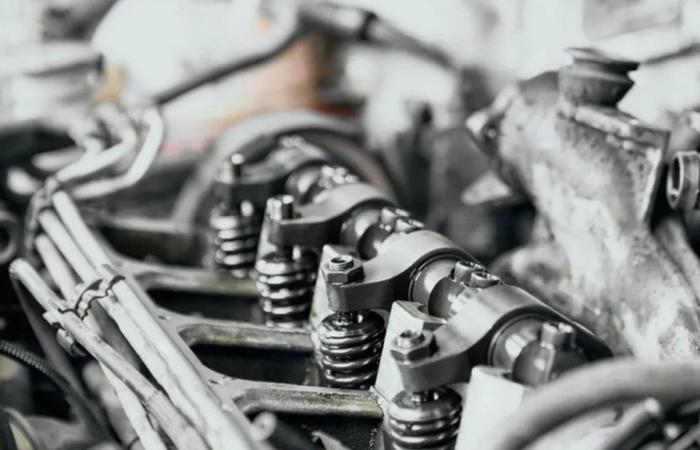06/23/2024 11:45
Updated 06/23/2024 11:45
The ban on combustion engines in Europe in 2035 has launched a real competition in search of alternative propulsion systems. Electric motors powered primarily by batteries or pos systems fuel cell hydrogen they take the lead.
Furthermore, the Alternative fuels seek to be more economical, efficient and, above all, sustainable to become another option than the one extend the life of current engines. In this way, the investment that was made in them would be used and an industry that survives by manufacturing them would be maintained.
Diesel engines that do not pollute
A team of engineers from the Engine Research Laboratory at the University of New South Wales in Australia (UNSW) has managed to convert a diesel engine to operate like a hydrogen-diesel hybrid enginereducing CO emissions2 in more than 85% during the process.
The team, led by the professor Shawn Kook from the School of Mechanical and Manufacturing Engineering, in collaboration with Professor Evatt Hawkesspent 18 months developing the hydrogen and diesel direct injection dual fuel system to allow any existing diesel engine to run at a 90% hydrogen.
Researchers say any diesel engine used in trucks and power equipment in the transportation, agriculture and mining industries could be adapted to the new hybrid system in just a couple of months. He green hydrogenproduced from renewable energy sources such as wind and solar, is much more environmentally friendly than diesel.
The process has been published in International Journal of Hydrogen Energywhere Professor Shawn Kook’s team shows that using their patented hydrogen injection system reduces CO emissions2 to only 90 g/kWha 85.9% less than those generated by a traditional diesel engine.
“Modernizing existing diesel engines is much faster than waiting for the development of new fuel cell systems, which may not be commercially available on a large scale for at least a decade. With the problem of carbon emissions and climate change, we need immediate solutions to address the problem of the many diesel engines in use today,” writes Kook.
Direct hydrogen injection
The solution described by the UNSW team preserves the original diesel engine injection, but incorporates an injection of hydrogen directly into the cylinder. Direct hydrogen injection controls the mixture inside the engine cylinder, thus solving the harmful emissions of nitrogen oxides (NOx), which are one of the main obstacles to the commercialization of hydrogen engines.
“If you simply add hydrogen to the engine and let it mix evenly, you will produce a lot of NOx emissions, a major cause of air pollution and acid rain,” says Professor Kook. “However, we have shown in our system that if we stratify the hydrogen (i.e. in some areas there is more hydrogen and in others less), we can reduce NOx emissions below those of a purely diesel engine.”
The dual fuel system does not need high purity hydrogen, very expensive to produce, which other hydrogen fuel cell systems require. The diesel-hydrogen hybrid has demonstrated an improvement in efficiency of more than 26% compared to conventional diesel engines. He cocontrol independent of hydrogen and diesel direct injection timingallows you to regulate all combustion modes, whether premixed or controlled by hydrogen mixing.
Practical applications
The new technology has immediate potential for use in industrial applications that already have permanent hydrogen supply lines, such as mines, where around 30% of greenhouse gas emissions come from the use of diesel engines in mining vehicles and power generators. Professor Kook highlights that in mines, where hydrogen is already available, existing diesel engines can be converted for use in power generation.
However, in applications where hydrogen storage and transportationAs in diesel trucks, hydrogen storage systems would need to be developed to integrate them into the injection system. Kook points out the importance of this further development of storage technology which currently represents a significant challenge.






